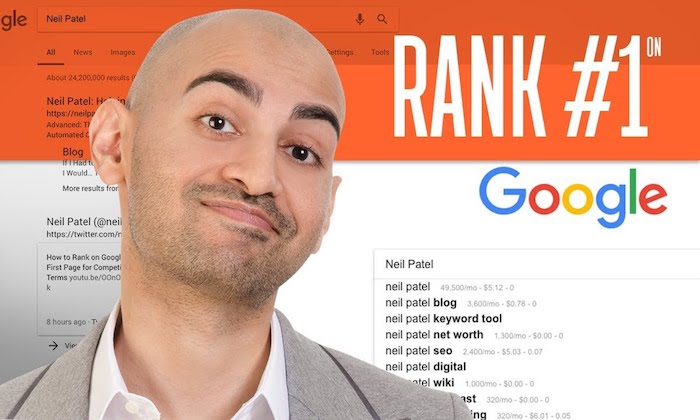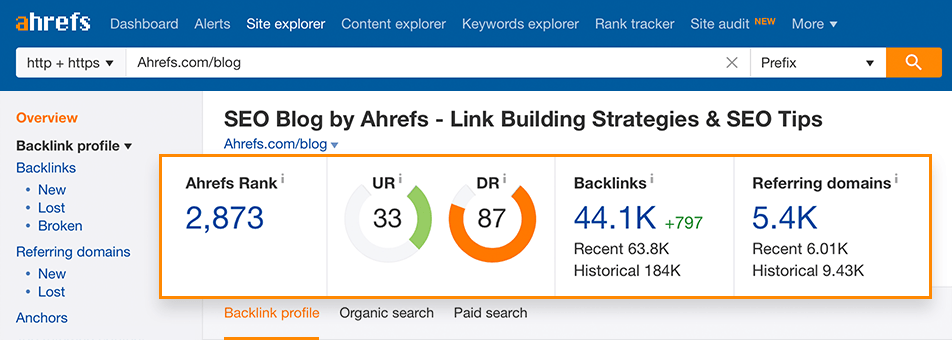20 of Our Favourite B2B Blogs From Around the World (and Why We Love Them)

Table of Contents
- Introduction
- 20 Best B2B Blogs
- Key Takeaways
- Conclusion
- FAQS
Including a B2B blog on your company’s website is a fantastic way to connect with your customers while also enhancing your image.
Many businesses have yet to recognize the potential of a blog as a useful tool. Most people feel that maintaining a blog may be laborious and that the time spent generating ideas for posts and adding value does not justify the effort. But the reality is that according to statistics, B2B marketers with blogs get 67% more leads than those who don’t have blogs.
A company blog on your website is unquestionably not a waste of time or space. To be honest, it’s probably the most cost-effective way to grow your business since it results in more deals, helps you establish yourself as a key authority in the field, and provides you an edge over your competitors.
So let’s take a look at some of the best B2B blogs, especially B2B marketing blogs that will inspire you to start your own blogging journey.

20 Best B2B Blogs that We Love
1. The Moz Blog

The Moz B2B blog, which is known for its SEO toolset, is a site covering all aspects of search and inbound marketing. It’s well recognized for its step-by-step how-to guides about SEO.
Established by marketing gurus Rand Fishkin and Gillian Muessig, this B2B blog example brings together industry experts who share their insights, advice, experiences, and much more. It’s definitely the finest place to receive the most up-to-date information on internet marketing. The website displays bits of information for obtaining clients through successful inquiry procedures.
2. Content Marketing Institute Blog
The Content Marketing Institute (CMI) is indeed the world’s leading authority in content marketing education and training. This B2B marketing blog’s founder, Joe Pulizzi, is famous for his content strategy and storytelling. This blog aids brands in attracting and retaining customers through persuasion and multi-channel storytelling. CMI provides methodology from the finest content marketers in the industry and is an undeniable must-read for anyone looking for the best advice in the industry.
3. Search Engine Journal
Search Engine Journal’s (SEJ) blog has been widely regarded as the leading source of SEO news. This B2B marketing blog was founded by Loren Baker and is known for getting its news straight from Google and delivering SEO and PPC progress suggestions daily. SEJ is one of the first places your organization should check if you’re looking for even the most current upgrades or need to ensure your organization is following established SEO practices.
4. Search Engine Land

Danny Sullivan developed Search Engine Land, a blog that covers all aspects of computerized showcasing, publicizing, and advanced innovations. It’s best recognized for news stories on search engine marketing and Google’s algorithm changes.
It also provides breaking news, moving points, and figures, as well as projections of data. In addition to the in-house team, Search Engine Land publishes articles from trained authorities who have a track record of achievement.
5. SEMrush

SEMrush blog is best known for being one of the marketing industry’s top blogs for learning about SEO, PPC, digital marketing, content strategy, etc. Founded by Oleg Shchegolev, it provides a mix of study guides for readers of varied skills levels, industry news, and data studies.
6. Search Engine Roundtable
Barry Schwartz’s Search Engine Roundtable reports on the most interesting debates happening in the world of web search tool promotion. It is famous for catching up on the most engaging threads on the SEM forums.
It enlists the help of a select SEM thought leader to provide in-depth coverage of well-known topics that will enlighten both newcomers and veterans. Consider this event to be the place to go if you’re looking for cooperation or best practices on anything related to search engine marketing.
7. Search Engine Watch
Danny Sullivan founded the Search Engine Watch, one of the best B2B blogs that provide information and tips on everything relating to online searches. It also includes business analysis and provides information to website owners striving to improve their visibility.
The comments section is always interesting with bloggers and guests constantly discussing the current article’s topic. The site is well-known for its coverage of search engine marketing, SEO trends, and pay-per-click advertising.
8. Marketing Land
Marketing Land is a sister publication of the B2B marketing blog Search Engine Land with the same Founder Danny Sullivan. It announces key forthcoming launches and digital marketing news.
Their distribution disseminates day-by-day posts, which include breaking news, industry trends, and tips and tricks from many segments of the advanced promoting sector. Aside from advanced advertising best practices, the site also covers topics including email marketing, web-based media, and much more.
9. Neil Patel

Neil Patel is a top content marketer in the country who has built successful companies of his own such as KISSMetrics and CrazyEgg and has consulted with a number of Fortune 100 companies.
He shows unrivaled ability in the industry. If you’re looking for valuable experiences to help you drive results for your marketing program, look no further than Neil’s blog. His articles emphasize on producing attractive content, particularly in video and webcast design, which are beneficial regardless of where you come from in the marketing space.
10. Hubspot
HubSpot is a marketing automation company founded by Brian Halligan, who gave birth to the concept of inbound marketing. For those unfamiliar with the word, it refers to a business strategy for attracting customers by providing valuable content. In most cases, there isn’t a company that outperforms HubSpot.
From a promotional standpoint, one of the most significant parts of this platform is creating actual blog content on just about any topic under the sun. As a result, many advertisers follow HubSpot’s blog daily. Thus, this B2B marketing blog has emerged as a go-to resource for anyone looking to learn about the most cutting-edge approaches in the digital world.
11. Google Search Central Blog
The B2B blog’s editor-in-chief, Gary Illyes, provides official Google news on everything related to stalking and ordering destinations. It’s wonderful for receiving the most up-to-date information on how to get your site ranked on Google. The information here is a little more specialized than some of the other sites on this list. Nonetheless, unless you’re an SEO professional, there isn’t much of a better option for content than Google itself.
12. Crazy Egg
Neil Patel built Crazy Egg, a tool that provides heatmaps, scroll guides, and snap reports that show how clients react to various site components. The blog provides information-rich content, as well as suggestions for improving your website’s conversion rate.
You’ll find articles on creating persuasive duplicates, improving greeting pages, and planning effective ideas to take action. Neil Patel, the creator, occasionally posts on The Daily Egg, although most of his content is still on his own site. In either case, this blog remains one of the foremost authorities on improving conversion rates.
13. The Ahrefs Blog

With how-tos and assessment articles for advertisers and industry experts, the Ahrefs Blog helps advertising professionals improve their SEO. This B2B blog example’s expertise, as well as significant data insights in the SEO area, are beneficial to new professionals. Ahrefs’ articles are typically elegant, heavy material that delves into a fraction of their product’s features. While some blog postings promote their products, the vast majority are concerned with providing some advantage to advertisers through proven ways.
14. The Backlinko SEO Blog
The Backlinko SEO Blog was founded by Brian Dean with the goal of providing advertisers with strategies and procedures they need to get higher rankings. This blog focuses completely on SEO and traffic-related advice to help advertisers increase organic search traffic. He claims to be able to provide new supporters with the same advice he used to deal with a twofold deal in around fourteen days. Each of his offerings includes comprehensive guides to assist advertisers in learning everything they need to know about various topics.
15. Convince and Convert
According to the Content Marketing Institute, Convince and Convert is the world’s No. 1 content marketing blog. It was founded by Jay Baer and includes advice on web-based media, content marketing, informal promoting, and the customer experience.
The B2B marketing blog focuses on answering the question, ‘So what?’ for your business, and includes topics such as the best email headlines and how to optimize your site for voice search. A lot of their content also includes layouts, so you can easily put it to use.
16. The Unbounce Conversion Intelligence Blog

Rick Perreault is the founder of Unbounce. The Unbounce team shares their knowledge on increasing page effectiveness and lead generation best practices. This B2B blog is the place to go for advertisers who want to get more out of their site visits. It is renowned for its copywriting recommendations and A/B landing page optimization tactics.
17. Social Media Examiner
The world’s largest asset for web-based media advertising, Social Media Examiner, helps firms better associate with customers and produce mindfulness.
This B2B blog example examines the evolving web-based media landscape and provides unique content to help advertisers stay on the leading edge of online media. Master interviews, original research, and far-reaching publications make up their content.
Surprisingly, the blog began during the Great Recession, when its founder, Michael Stelzner, noticed that a few people debated how businesses could profit from emerging web-based media platforms.
18. Think with Google
Think with Google is helmed by Bethany Poole as the editor-in-chief. This B2B blog is best known for consumer insights, data visualization, and original research.
This thought initiative showcases systems, for example, programmatic advertising, measurement, and omnichannel. This distribution includes all of Google’s most current thinking, notwithstanding the most recent shopper experiences.
19. Yoast
Joost De Valk founded Yoast. Its B2B blog covers several issues related to websites and online business, including content SEO, specialized SEO, research, and online business locations. Their major purpose is to provide all marketers with the opportunity to appear in web crawlers by providing weekly ideas on improving the convenience of use, conversions, and, of course, SEO. Aside from the free amateur’s course, they also offer the opportunity to download free modules and additional features.
20. Blind Five Year Old
AJ Kohn runs Blind Five Year Old, an SEO firm and blog. The moniker stems from an SEO approach that has been tried and true: treat web search tools as though they were vision-challenged long-term olds. It’s specialized but quite legitimate, and it’s a must-read for anyone concerned about their appearance.
Key Takeaways
- B2B blogs are an essential part of any business’s digital marketing strategy, and thus, all businesses should consider having them.
- B2B blogs help get leads and establish the brand as a strong thought leader in the industry.
- Some of the leading B2B marketing blogs that we love include The Moz Blog, Hubspot, Aherfs, Backlinko, etc.
- These blogs are the destination for industry news and the latest trends, making them popular. Apart from this, these B2B blogs provide templates, guides, and case studies for readers to practically implement the blog teachings.
Conclusion
B2B blogs are the future of content marketing; hence they are a great way to improve your business. This being said, these B2B blogs are the greatest of all time, and you should definitely look at them before you decide to start your own.
FAQs
A content marketing strategy is like a roadmap or a blueprint. While it’s not set in stone, a marketing strategy is a set of guidelines to help you get from point A to point B. Without a roadmap, you’re more likely to get lost. There’s a higher chance you’ll lose sight of your business goals, and you might struggle to get back on track. A marketing strategy, then, is key to helping you create the right content at the right time to reach your target clients in the shortest time possible. You can’t just use any old content marketing strategy, though.
With B2B marketing, you’re targeting business clients. You’re trying to demonstrate your experience, expertise, and skill to convince businesses to work with you. On the other hand, B2C marketing involves targeting individual consumers. You’re focusing on nurturing leads, building an emotional connection with people, and convincing them to buy a specific product.
A good B2B content marketing campaign should help build trust in your company, provide valuable information to your audience, and inspire companies to choose your products and services. Above all, a great content marketing strategy should establish you as an industry leader or innovator in your chosen niche.
Research your target audience to understand what challenges they face, and create content designed to help solve those problems. You should also check out competitors for content ideas and watch news channels. Aim for a blend of evergreen and timely content to keep your articles, videos, and podcasts varied and fresh.
Business-to-business (B2B), also called B-to-B, is a form of transaction between businesses involving a manufacturer and wholesaler or a wholesaler and a retailer. Business-to-business refers to a business conducted between companies rather than between a company and individual consumers.
Latest Blogs
Explore how Google’s 2025 AI search updates triggered ranking chaos. Learn actionable strategies to adapt your SEO for AI Overviews, zero-click searches, and SERP volatility. Stay ahead now.
Learn how to rank on AI search engines like ChatGPT, Perplexity, and Gemini by optimizing your content for authority, structure, and relevance. Stay ahead in AI-driven search with this strategic guide.
Explore the best healthcare SEO services for your medical practice. Improve online visibility and effectively reach more patients in need of your services.
Get your hands on the latest news!
Similar Posts

Content Analytics
8 mins read
Google I/O 2025: AI Search Shake-Up & Ranking Volatility

Artificial Intelligence
5 mins read
Top AI Blog Writing Tools for Website Monetization

Blogging
10 mins read